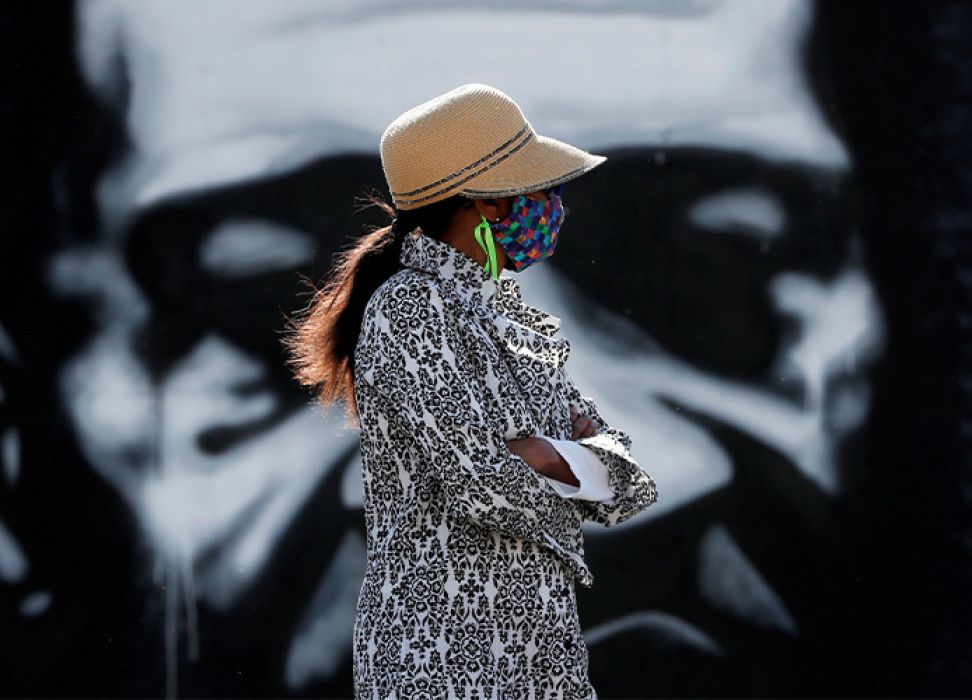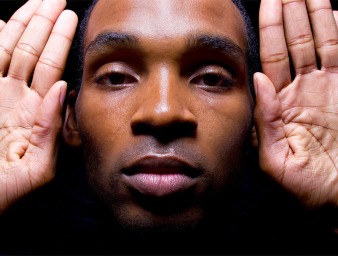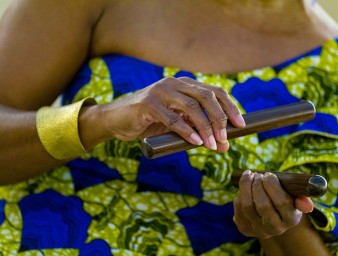Исторический доклад ООН предлагает программу действий по искоренению системного расизма
29 июня 2021

The murder of George Floyd, an African-American man, by a law enforcement official on 25 May 2020 in Minnesota, United States, sparked unprecedented worldwide protests that marked a watershed moment in the struggle against police brutality and racism.
Later that year in June, the UN Human Rights Council adopted resolution 43/1 that requested UN Human Rights Chief, Michelle Bachelet, to prepare a comprehensive report on systemic racism, violations of international human rights law against Africans and people of African descent by law enforcement agencies, and accountability and redress, and Government responses to anti-racism peaceful protests.
“
Systemic racial discrimination extends beyond any expression of individual hatred. It results from bias in multiple systems and institutions of public policy, which separately and together perpetuate and reinforce barriers to equality.
“
UN Human Rights Chief, Michelle Bachelet
"Systemic racial discrimination extends beyond any expression of individual hatred," Bachelet told Human Rights Council that June. "It results from bias in multiple systems and institutions of public policy, which separately and together perpetuate and reinforce barriers to equality."
A year later, Bachelet's newly launched Agenda towards transformative change for racial justice and equality offers a way forward for States to "reverse cultures of denial, dismantle systemic racism and accelerate the pace of action." The report calls on States to right historic wrongs, while addressing the current realities and lived experiences of people of African descent.
Intersecting forms of racial discrimination
"Systemic racism operates as a series of racialized norms, and we have been able to measure it everywhere there is data. The way that systemic racism manifests in our societies globally is pervasive and toxic," said Dominique Day, chairperson of the UN Working Group of Experts on People of African Descent.
Day was among the UN experts whose perspectives and insights were sought to develop Bachelet's report. In addition, the report received more than 100 submissions by States and other stakeholders, as well as 23 online consultations with over 340 academics, human rights institutions, civil society organizations led by people of African descent, and family members of people of African descent killed by law enforcement officials.
Systemic racism is cross-cutting, Day continued. It is found in health care, doctors will credit less disease and pain based on race. It is found in education, where globally children of African descent are diverted away from higher level education and are subjected to lowered expectations, she added.
"So the manifestations of systemic racism are everywhere we look, despite the very strong inclination globally to deny that this high frequency occurrence is actually systematic," Day said.
The report highlighted that people of African descent "face inter-connected, intersectional and compounded racial discrimination, marginalisation and exclusion, shaped by historical legacies and mutually reinforced through cycles of structural inequalities that have lasted for generations, affecting the enjoyment of human rights in every part of life."
The report also found that in countries where they form sizeable communities, people of African descent are more likely to disproportionately suffer the effects of marginalisation and exclusion including: higher rates of poverty, unemployment rates and occupying less skilled positions; living in segregated, disadvantaged and hazardous neighbourhoods; environmental pollution and lack of access to clean water; obstacles in gaining equal access to quality education and health care; and, in some countries, displacement, dispossession, exclusion from and expropriation of their lands.
All these inequalities are compounded by insufficient participation and representation of people of African descent in decision-making processes and in public life, the report stated. For example, in the United States, some people of African descent are affected by measures to keep them from voting, including denying voting rights to individuals with felony convictions.
Lingering influence of a false construct on race
The dehumanization of people of African descent is rooted in the false social constructions of race created to justify enslavement, in pervasive racial stereotypes, and in widely-accepted harmful practices and traditions that have fostered a tolerance for racial discrimination, inequality and violence, the report explained.
Day said she has experienced this.
"I am an attorney. I go to court sometimes and on a number of occasions I have been inferred to be a criminal defendant rather than a lawyer," she said. "I am a black woman. Ninety-nine per cent of the people who are brought into criminal court, into family court are black. And despite the fact that I am wearing a suit, I am carrying a computer, I am doing things that only lawyers do."
"The inference, presumably based on my skin colour, is that I am a criminal defendant or respondent in court."
The report further highlighted that systemic racism persists because of the misconception that the abolition of slavery, the end of the transatlantic slave trade and colonialism, and some measures taken by States to date have removed racially discriminatory structures and created racially equal societies.
This culture of denial remains a significant obstacle to combating systemic racism, Day said. Not only because it is deeply embedded in the culture of individualism but also because "people do not want to disrupt their comfort."
"It is very difficult for people to sit with the discomfort that they are complicit in systemic racism," Day added. "So the idea that you need to confront your own bias and sit with the discomfort of how intentionally or not you contributed to racial hierarchy and human rights abuses is not something most people, even at very high levels, are capable of doing psychologically."
Outlining a way forward for States
Eliminating systemic racism would entail, among other measures, reforming institutions, legislation, policies and practices that may be discriminatory in outcome and effect, the report stated. It urges States to adopt a "systemic approach to combatting racial discrimination" through the adoption of whole-of-government and whole-of-society responses that are contained in comprehensive and adequately resourced national and regional action plans and special measures for disadvantaged groups.
The report also highlights the need for the collection, publication and analysis of data disaggregated by race and ethnic origin to allow a better understanding of the magnitude of systemic racism and monitor the effectiveness of policy measures.
States are also urged to ensure the meaningful participation of people of African descent in decision-making processes and State institutions, such as law enforcement and the criminal justice system.
"States have a wonderful opportunity to step forward. For some States, that might start with legal reform or policy reform. For every State that should start with developing a set of measures for how they know they are actually solving the problem," Day said. "These measures have to be grounded in impact and in outcomes, not merely in changing a language that inhabits our laws or that inhabits our policies. States also need to be courageous."
29 June 2021
This story is the first in a four-part series presenting UN High Commissioner Bachelet's Agenda towards transformative change for racial justice and equality. Each part highlights the historic specificities, the lived experience and current realities of people of African descent in several States.



